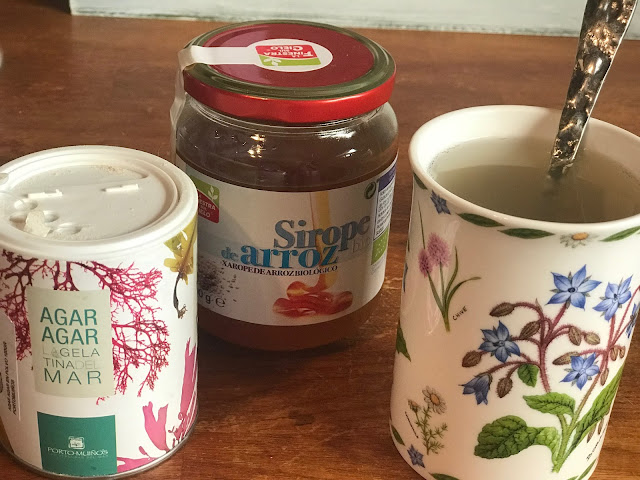This means our receptors for bitter taste are not being used - these receptors appear on the tongue, throughout the digestive system and even on the pancreas. We actually have 25 bitter receptors in our gastrointestinal tract but only 1 receptor for a sweet taste and 1 for the umami taste.
When something bitter hits our tongue, a message is sent to the gut to stimulate the production of enzymes and to start the digestive process. Today, without this important flavor, we are aren't getting the vital stimulation, and as a result, digestive issues, cravings for sweets, or weight gain can happen.
A bitter taste is one of the important 5 flavors in Traditional Chinese Medicine, along with salty, sweet, sour, and pungent. Bitter corresponds to the season of summer, and is the flavor of the Fire element. Bitter is a powerful mover especially for the heart and small intestine. Of course, too much can be damaging. Coffee is bitter and overdoing it can spike blood pressure levels and affect heart health. In the long term coffee drains our reserves of energy.
Traditionally, bitter foods - greens, herbs, and roots - were brewed into a tonic. This tonic was taken after a meal to help the digestive pocess. Bitter greens and herbs were also used after the long winter months to detox the system, and provide important nutrients.
Bitter foods have been known throughout history to have powerful medicinal properties
Here are some of the ways that bitters can boost your system
Help to stop over eating
Control sugar cravings and excess hunger
Stimulate the liver to produce bile which makes it work more effeciently
Increase nutritional absoption
Support a smooth and healthy digestion
Protect against cancer, diabetes,and heart disease
Promote healthy blood sugar levels
Improve energy and endurance
Provide plenty of vitamins and minerals
Bitter Tasting Foods
that can be easily included in our meals
Dandelion greens
Chicory
Endives
Radicchio
Radish greens
Arugula
Mustard greens
Carrot tops
Grapefruit
Orange and lemon rind
Cranberries
Green olives - traditionally prepared
Burdock
Turnips
Daikon (smaller ones)
Cucumbers (sometimes)
Sage
Nettle
Thistle
Rosemary
Nettle
Thistle
Rosemary
Margaram
Walnuts
Sesame seeds especially black
Tahini
Grain coffee
Green tea
Sesame seeds especially black
Tahini
Grain coffee
Green tea












































